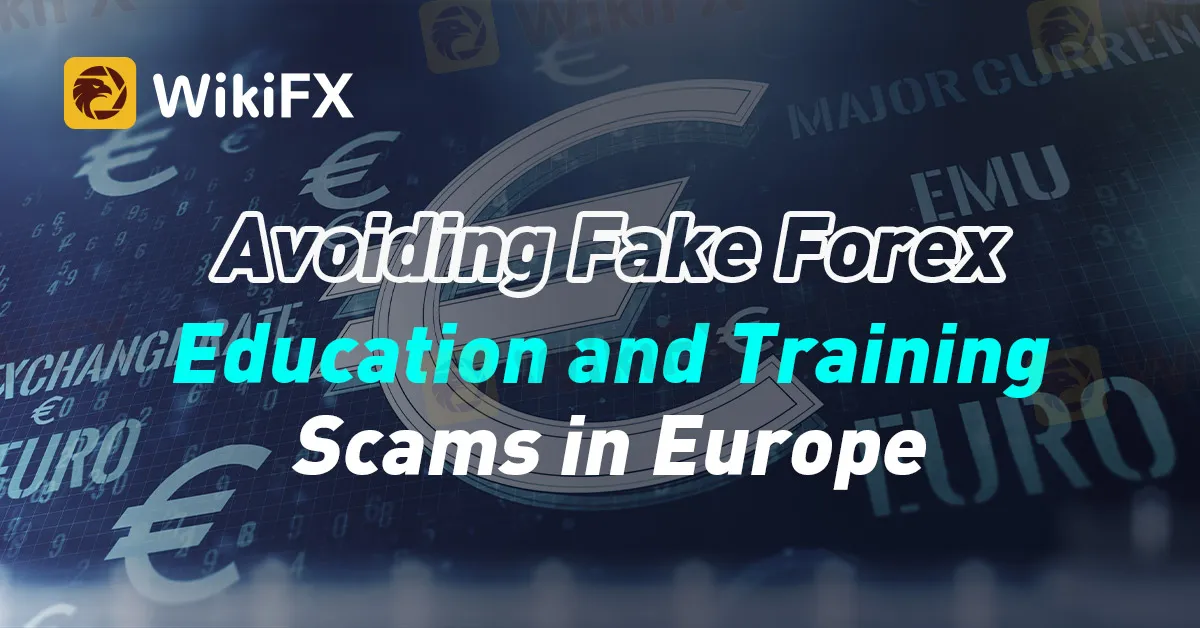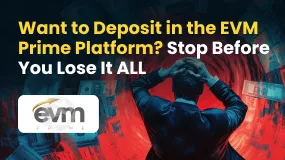简体中文
繁體中文
English
Pусский
日本語
ภาษาไทย
Tiếng Việt
Bahasa Indonesia
Español
हिन्दी
Filippiiniläinen
Français
Deutsch
Português
Türkçe
한국어
العربية
Avoiding Fake Forex Education and Training Scams in Europe
Abstract:Education and training are crucial for traders to develop their skills and succeed in the forex market. However, there are fraudulent entities that offer fake education and training programs, preying on traders' desire for knowledge. In this article, we will discuss how to recognize and avoid fake forex education and training scams in Europe.

Education and training are crucial for traders to develop their skills and succeed in the forex market. However, there are fraudulent entities that offer fake education and training programs, preying on traders' desire for knowledge. In this article, we will discuss how to recognize and avoid fake forex education and training scams in Europe.
Accreditation and Reputation
Genuine education providers often have accreditation from recognized institutions or affiliations with reputable organizations. Verify the credentials and reputation of the education provider before enrolling in any program. Look for reviews and feedback from past students.
Unrealistic Claims
Be cautious of education providers that make extravagant claims about guaranteed profits or quick success. The forex market is complex and requires time, effort, and experience to master. Legitimate providers emphasize realistic expectations and provide a comprehensive education.
Free vs. Paid
While some legitimate providers offer free educational resources, be cautious of entirely free courses that promise to make you an expert trader. Quality education often requires investment. However, research and ensure that the fees are reasonable and commensurate with the value provided.
Course Structure and Content
Evaluate the course structure and content before enrolling. Legitimate providers offer a well-structured curriculum that covers various aspects of forex trading, including risk management and technical analysis. Fake education programs may lack depth or provide outdated information.
Conclusion
Protect yourself from fake forex education and training scams by conducting thorough research, verifying accreditation and reputation, and critically evaluating the course content. For reliable information and resources on forex education, consider visiting WikiFX at www.wikifx.com. They offer comprehensive insights into education providers, helping traders make informed decisions and avoid falling victim to fraudulent schemes.

Disclaimer:
The views in this article only represent the author's personal views, and do not constitute investment advice on this platform. This platform does not guarantee the accuracy, completeness and timeliness of the information in the article, and will not be liable for any loss caused by the use of or reliance on the information in the article.
Read more

Never Heard of Dynasty Trade? Here's Why You Should Be Worried
Have you heard this name before? No , it’s time you do because staying unaware could cost you. This platform is currently active in the forex trading and has been linked to several suspicious activities. Even if you’ve never dealt with it directly, there’s a chance it could reach out to you through ads, calls, messages, or social media. That’s why it’s important to know the red flags in advance.

Want to Deposit in the EVM Prime Platform? Stop Before You Lose It ALL
Contemplating forex investments in the EVM Prime platform? Think again! We empathize with those who have been bearing losses after losses with EVM Prime. We don't want you to be its next victim. Read this story that has investor complaints about EVM Prime.

WEEKLY SCAM BROKERS LIST IS OUT! Check it now
If you missed this week's fraud brokers list and are finding it difficult to track them one by one — don’t worry! We’ve brought together all the scam brokers you need to avoid, all in one place. Check this list now to stay alert and protect yourself from fraudulent brokers.

Catch the Latest Update on BotBro & Lavish Chaudhary
BotBro, an AI-based trading platform, became popular in India in 2024—but for negative reasons. Its founder, Lavish Chaudhary, who gained a huge following by promoting it heavily on social media. Since then, he has become well-known, but for many controversies. Let’s know the latest update about Botbro & Lavish Chaudhary.
WikiFX Broker
Latest News
WEEKLY SCAM BROKERS LIST IS OUT! Check it now
Apex Trader Funding is an Unregulated Firm | You Must Know the Risks
What WikiFX Found When It Looked Into Aron Markets
Textiles to whisky: U.K.–India 'historic' deal is set to boost bilateral trade by over $34 billion a year
Thailand-Cambodia border clashes: Cambodia's economy has more to lose, analysts say
Puma shares plunge 18% after full-year sales, profit outlook cut on U.S. tariffs
Is Your Forex Strategy Failing? Here’s When to Change
FSMA Warns That Some Firms Operate as Pyramid Schemes
Federal Reserve likely to hold interest rates steady despite pressure from Trump. Here's what that means for your money
Sigma-One Capital Scam? Investors Say They Can’t Withdraw Funds
Currency Calculator


